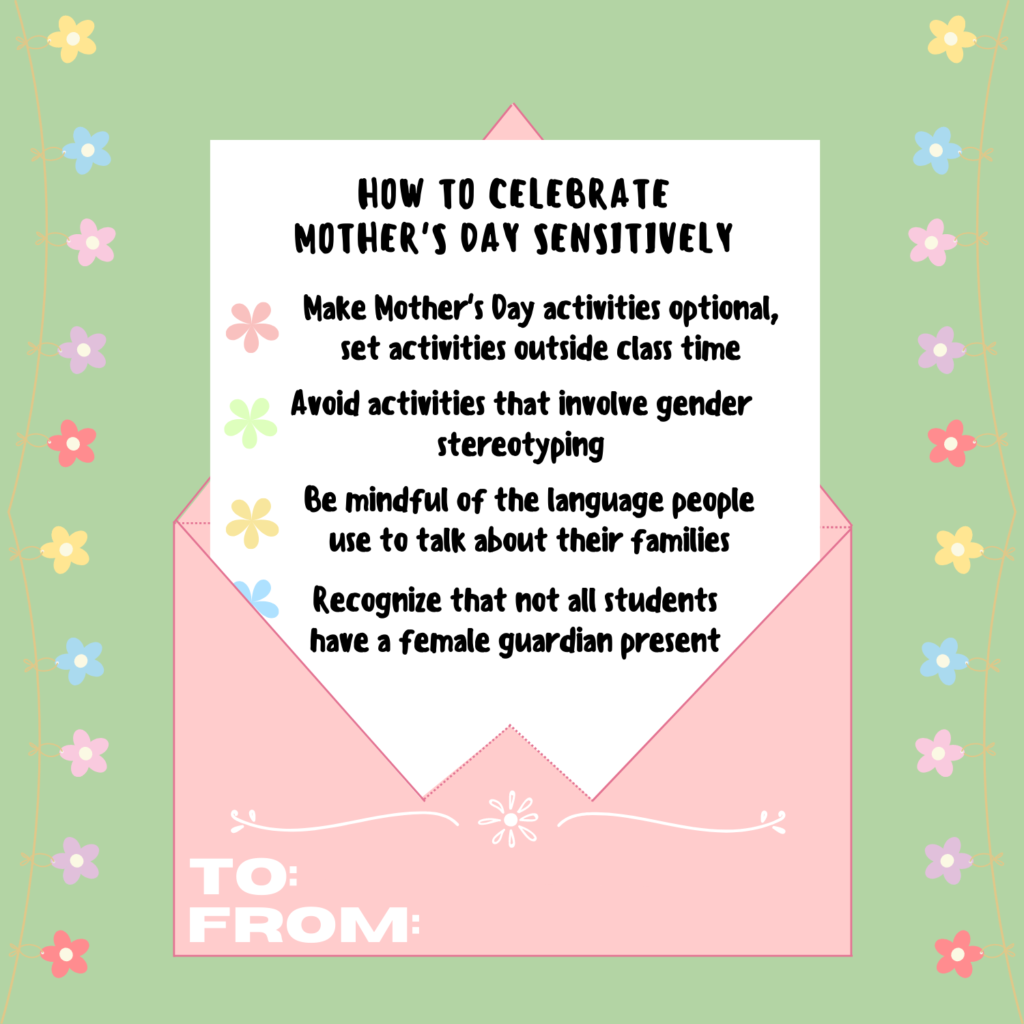
INFOGRAPHIC/ Kaylee Eiber & Jessica Lu
By Kaylee Eiber,
Staff Writer
Mother’s Day is fast approaching, which brings a chance to honor the critical roles parental figures play in our lives. However, certain elementary school activities make students outside the nuclear family structure feel excluded as if something is wrong with their family. Schools should adjust their activities to celebrate the different types of families that exist.
Giving gifts to a loved one is one of the purest forms of joy, but despair arises when not every student has someone on the receiving end. In this age of diversity and inclusivity, this same courtesy of recognition should extend to every student’s background, recognizing that young students can have different family structures, such as those without families, divorced, deceased, estranged or abusive mothers or fathers.
As TCUSD concludes its school year in mid-June, it is common for teachers to dedicate class time to making crafts for Father’s Day. My first experience was in third grade, watching the DIY card-making video conclude and growing increasingly more worried for when the lights would turn back on. There was no way to put it lightly for my teacher—my father died when I was six, and I had no one to make a gift for.
By establishing dedicated times to create gifts, elementary schools imply to young students that every kid should have a parent to write cards and make gifts for. This creates a toxic environment that students like myself dread each year, bringing up bad memories with the common thread of exclusivity and ignorance
.Schools need a different way to honor these undoubtedly important holidays. Families are nowhere near an uncommon topic, meaning classes can easily cover these topics without hosting personal activities for every student.
A common but less than sufficient solution is to tell a student to create these gifts for another figure in their life. Though a kind gesture, in theory, experience proved to me that this was not the same. I can appreciate the consideration of alternate options but it always felt like an afterthought.
Additionally, pulling a student aside only worked to directly address the tension and most often backfired.
Taking the time instead to discuss what makes families so unique provides a learning experience for both teachers and students while making a more inclusive school environment, especially for those affected personally.
Elementary schools have the added benefit of recess, meaning something as simple as setting up a table for these crafts provides the same outcome as forcing everyone to make them in class.
No student should have to feel excluded, especially on holidays about family and love. Turning these opportunities into teachable moments prevents the tension and dread of having to suffer the looming pressure around the holidays, which is more common than meets the eye. Inclusivity and sensitivity towards these students such as myself help turn parent appreciation days into positive experiences for everybody.
